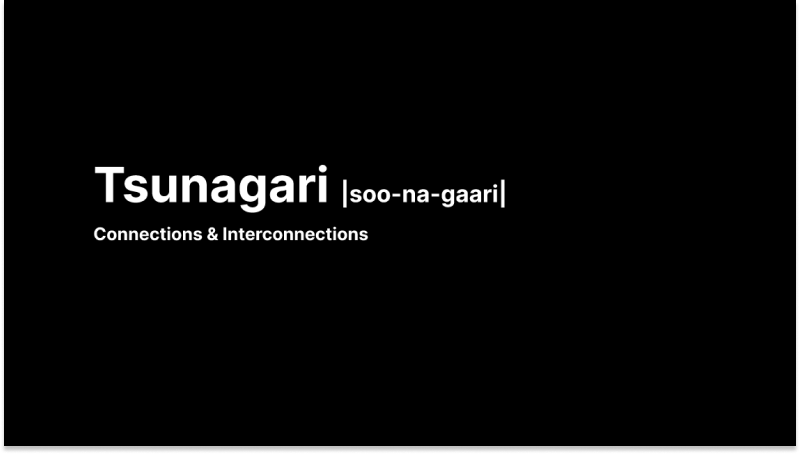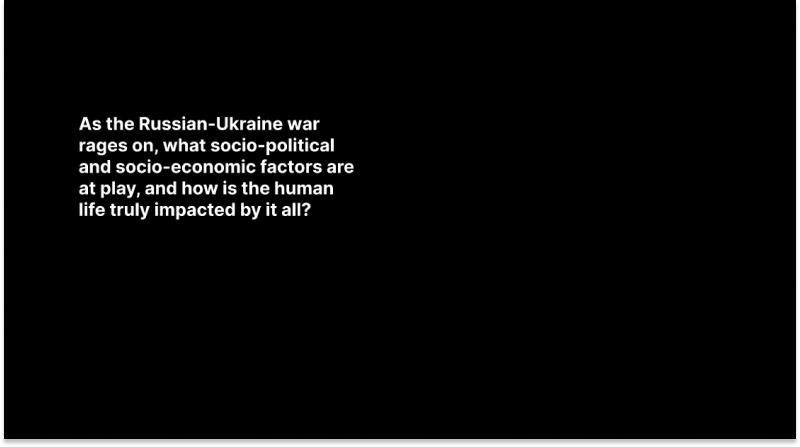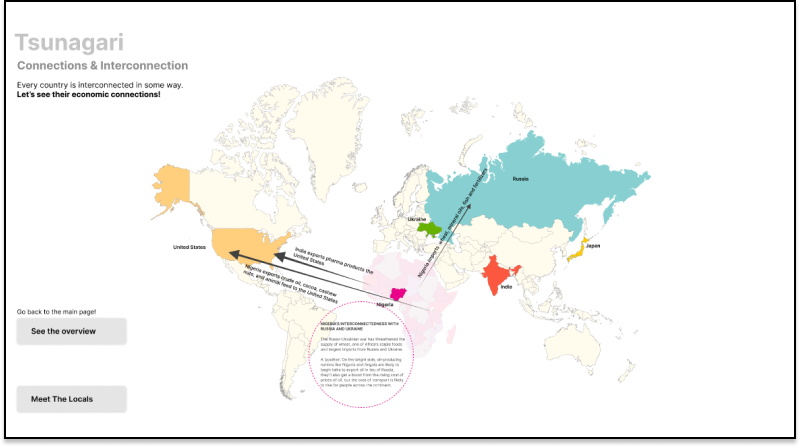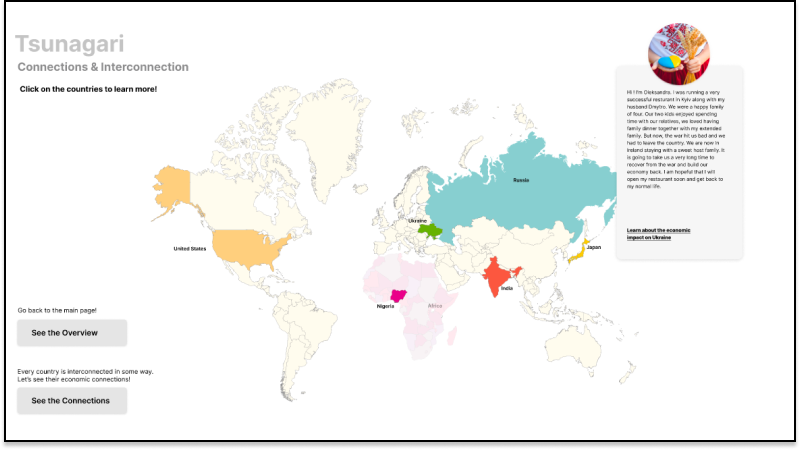7 weeks
Skills: Literature review, Secondary research, Systems thinking, Critical thinking, Speculative Design, Concept development, Strategic narrative, discursive tool, Writing for impact
As Russia’s war against Ukraine continues, there are a myriad of factors at play that have impacted lives across the world.
The United Nations called for a vote in an attempt to restrain Russia's destructive move, and it quickly became clear that nation-states were more concerned about their own interests than about each other or even about their citizens.
Geopolitical dynamics are at play with countries that have power and resources. Their agendas and goals are to keep strengthening their status, while countries in Europe wade between sanctioning Russia and battling their needs for what it supplies them, e.g., oil and gas. In situations such as this, nations around the world, especially those with vulnerable economies, are encouraged to pursue their own interests. Some nations, like India, did this and were heavily criticized for it.
Other nations, like Nigeria and similar African states, were quick to take a stance on supporting or opposing those who were voting against Russia's attack. However, they were also acting in the interest of their nation(s), and foreign relations could've seen taking sides as detrimental to their stance in the global economy.
The United Nations called for a vote in an attempt to restrain Russia's destructive move, and it quickly became clear that nation-states were more concerned about their own interests than about each other or even about their citizens.
Geopolitical dynamics are at play with countries that have power and resources. Their agendas and goals are to keep strengthening their status, while countries in Europe wade between sanctioning Russia and battling their needs for what it supplies them, e.g., oil and gas. In situations such as this, nations around the world, especially those with vulnerable economies, are encouraged to pursue their own interests. Some nations, like India, did this and were heavily criticized for it.
Other nations, like Nigeria and similar African states, were quick to take a stance on supporting or opposing those who were voting against Russia's attack. However, they were also acting in the interest of their nation(s), and foreign relations could've seen taking sides as detrimental to their stance in the global economy.
Our multinational team of three had conducted extensive secondary research and a literature review. Concerning the Russo-Ukrainian war as well as past conflicts and their varying effects on national economies, we analyzed a variety of sources from prominent media, experts, thought leaders, and historical publications.
Economic relations between the countries.
Today, the countries of the world and their citizens are more connected than one might think. Like in a chemical chain reaction where one reactant causes additional reactions, an event like the Russo-Ukrainian war has impacted lives across the world, and it’s harder to see from a singular standpoint. How has the war impacted people at a microlevel? How do others in different countries around the world perceive the war’s impact on their fellow humans?
As human-centered designers, we have empathy and an understanding of how humans operate and their needs. Then, we create concepts and ideas that address these problems and meet the needs of the user. But how can we effectively comprehend and address a complex issue in order to ask the right questions?
A discursive tool can be effective for designers in reducing the complexity of a problem and presenting an alternative point of view—the human perspective. Additionally, it can facilitate discussions.
Design Precedent
The British Museum's website was the source of inspiration for the design of our discursive tool. It presents a wealth of information in an engaging and simplified manner. As users interact with the application, they are delighted to discover additional information.
Screenshot of the website of British Museum.
As we conducted research and gathered information relating to the impact of war on each of the six countries, we realized how the impact influences every aspect of daily life. This realization altered how we intended to design the instrument. It was crucial to organize and convey the information in an appropriate way.
Gathering and distilling information.
Initial Prototype
Initial Prototype
The final prototype




The final prototype is an interactive digital map showing global connections and interconnections. These connections also represent the various levels of conflict.
The 'think aloud' method was used for usability testing. The reader was significantly influenced by a map with personas presenting their life stories and how the crisis affected them. The personas that we deliberately crafted to avoid creating stereotypes were also successful. Seeing the relationship between the countries enhanced the reader's understanding and gave them a new perspective, which led to more in-depth discussions.
I further developed the project by writing an article titled 'Layers of a war' to explain the impact of war -https://medium.com/@pkurra_11732/layers-of-a-war-7b76a36247a5
On May 9th 2022 five days after we presented our project, Mckinsey & Company released a report illustrating the deeper implications of war on human lives, which validates our point of view -https://www.mckinsey.com/capabilities/strategy-and-corporate-finance/our-insights/war-in-ukraine-twelve-disruptions-changing-the-world





